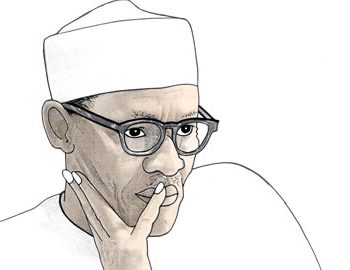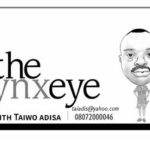Whereas Nigerians, looking back now and as a result of the monumental mismanagement of this country by government after government, regard the First Republic as the golden age of good governance in Nigeria, it cannot be because that period did not have its shenanigans. Otherwise, the first coup would not have been and Major Kaduna Nzeogwu, leader of that coup, would not have, in his announcement, described the politicians of that time as “10 percenters… who made this country look big for nothing.”
We have heard fairy tales of the audacity, flamboyance, and corruption of the Minister of Finance of that time, Okotie-Eboh aka Omimi-Ejoor (comparable to the negative heroics of latter-day AMA Akinloye and Umaru Dikko) but it would appear that there was also a sense and passion for delivery of quality service to the people, especially in the then Western Region, enabling it to record a lot of “firsts”, such as free education, first television station in Africa, high-rise Cocoa House, Liberty Stadium, etc. Yet, this is not to say that there was no corruption in the government of the then Western Region. I can confirm that even as late as the 1980s, there was corruption in the Unity Party of Nigeria government. As a reporter with the Ibadan-based Sketch newspapers, now defunct, I covered the Uwaifo panel that tried governors Adekunle Ajasin of old Ondo State and Bisi Onabanjo of Ogun states. The difference between then and now is that corruption was not as rapacious as it later became and has remained to this day.
The Yakubu Gowon administration could have done more for Nigerian than it did; youthful exuberance and inexperience “killed” the young man who began to rule at age 29. He emptied our coffers, so to say, to give his wife, Victoria, state wedding, and was reported to have said Nigeria’s problem (during his tenure) was not money but how to spend it. He thus gifted our money as “Father Christmas” to worthy as well as unworthy causes; but for the experience, discipline, and steady hands of Chief Obafemi Awolowo, who was Gowon’s Finance commissioner, as they were then called, and vice-chairman of the Federal Executive Council, the country would not have been able to prosecute the Civil War without borrowing a kobo; it would not have come out of it without being bankrupt; and the economy would also not have been buoyant enough to execute a lot of the capital projects credited to Gowon, especially the three Rs – Reconciliation, rehabilitation, and reconstruction that came after the civil war. Gowon was not firm on taming corruption and indiscipline as demonstrated by his vacillation over the corruption issues involving businessman and social crusader of his time, Godwin Daboh, and Joseph Tarka, an important minister in the Gowon administration. Little wonder, then, that the Gowon administration unravelled miserably after Awolowo’s exit, eventually getting toppled for its corruption. “Nigeria prays” which Gowon champions today, appropriately ought to be tagged “Gowon prays” as restitution for the havoc he visited on Nigeria during his inglorious rule. Gowon is bad commentary on the clamour for youth empowerment at the topmost pinnacle of political leadership in the country.
The short-lived Murtala Muhammed administration won the heart of Nigerians as an “action” government but with the benefit of hindsight, much of that action was misdirected. Murtala ruined the country’s Civil Service, comparable to the best in the world, with his “with immediate effect” hastily conceived and poorly executed orders; not to talk of his widely reported misdemeanour at the war front during the civil war, most especially in Benin . Olusegun Obasanjo, who took over, was a case study in cowardice and selfishness. He turned the South over to the suzerainty of the North, handing them the political and economic advantage they improved upon and have held on to till this day. In moving the federal capital there; and in being a figure-head military Head of State while the real power behind the throne was his deputy, Musa Yar’Adua. The North’s advantage he did not hand over, he failed or blatantly refused to redress (e.g. the North’s vice-like grip on the military), as the late Gen. JJ Oluleye graphically described to me in his life time. The icing on the cake, as it were, was his laconic statement that the best candidate may not win the 1979 general election to return the country back to civil rule, following after which they worked “wuru-wuru” to the answer and handed power to Shehu Shagari. Pity, Lai Muhammed was yet to cut his political teeth in those days. I shudder to think how he would have described Shagari, who was more clueless than cluelessness and more incompetent than incompetence. His government was through and through inept, corrupt, and brazen.
Enter Muhammadu Buhari! Buhari’s brain box, as it were, was the never-smiling Gen. Tunde Idiagbon, who coordinated that administration while Buhari gallivanted all over the place soaking in, and taking the glorious. That junta, appropriately tagged the “Buhari/Idiagbon regime” was brutal and audacious; its discipline ethos and queue culture resonated with Nigerians but the same Nigerians recoiled when the junta heartlessly made retroactive laws and sent three Nigerian youths to their grave. That junta criminalised the publication of the truth with Decree 4 of 1984 and sent two The Guardian newspaper editors, Tunde Thompson and Nduka Irabor, to prison for publishing the truth. Yet, the holier-than-thou junta was not above board as it exhibited gaping double standards and criminal complicity in acts of monumental corruption. In a junta that made a decree banning juveniles from holy pilgrimage, Idiagbon took his own 14-year-old boy on pilgrimage to Mecca, where he was when their junta was overthrown. In a junta that secretly and suddenly changed the currency and barred people from bringing in money for exchange, the father of Buhari’s aide-de-camp was allowed in with 53 mysterious suitcases which is believed till today to contain currencies for exchange. Compare these with what is happening today, especially with Buhari’s so-called anti-corruption war and the kid gloves with which he treats Fulani herdsmen vis-a-vis the sledge hammer he wields against neo-Biafrans and you will see that it is not today that Buhari started his double standards. This is not to mention the 2.8 billion that allegedly got missing in the NNPC under his watch as Minister of Petroleum under the Obasanjo regime and his support for the vilest Nigerian dictator ever, Sani Abacha, whose Petroleum (Special) Trust Fund chairman he was.
In that position, Buhari gave undue preferential treatment to his North-west, followed by the two other zones in the North before the South smelled anything. Buhari defended Abacha, saying he did not steal; today we know better with the Abacha stolen funds that the Buhari administration itself has recovered. Buhari defended Boko Haram, calling them fighters for the North and accusing ex-President Goodluck Jonathan of persecuting the North for fighting the insurgents; today we know better with Buhari himself fighting Boko Haram. Today Buhari defends Fulani herdsmen, urging their victims to accommodate them; tomorrow we shall know better.
I always have difficulties discussing Ibrahim Babangida. After having appropriately labelled himself the “evil genius”; what else can you add? Although IBB might have meant that statement as sarcasm, it sits pretty. As reggae artist, Bob Marley, crooned, who the cap fits, let them wear it. The cap of evil genius fits IBB; so, let him wear it. IBB institutionalised corruption on a massive level, especially in the military. He is credited to have destroyed the hallo of seniority and, with it, discipline, in the military. IBB also instituted the “settlement” culture as a political system, believing that everyone has a price. Only God knows how much he wasted on his unending transition to civil rule programmes which, in the end, transited unto political impasse, as it was called, with the annulment of the June 12, 1993 presidential election, which ultimately consumed the evil genius himself, forcing him to “step aside” from office and from power. IBB was a waster of resources par excellence. He gathered some of the best brains, midwife some of the finest policies and programmes but as he builds, he also turns round to destroy, forgetting the admonition (even if perky) of Justice Sowemimo, that you do not build a house only to turn round to bring it down. Whatever IBB built, he brought down with his own hands. Should we save ourselves very sad memories and skip Abacha? Till date, government is still recovering his loot from all the nooks and crannies of the globe. The innocent souls that he cut down to destroy June 12 and maintain himself in power; including Kudirat Abiola, my one-time reporter, Bagauda Kaltho; and Alfred Rewane; not to talk of the countless unknown and faceless pro-democracy activists that he felled on Lagos streets and elsewhere; the phantom coups he engineered and through which the likes of Shehu Yar’Adua, Obasanjo, Gani Fawehinmi, Beko Ransome-Kuti, Femi Falana, were implicated and sentenced; the avalanche of pro-democracy activists he hounded into exile; the arrest and detention of MKO Abiola – to mention but a few. Abacha’s death was a relief. Say no evil of the dead – not with Abacha as Nigerians rejoiced over his demise. That very little is said in discussions such as this about his successor, Abdulsalami Abubakar, does not mean not much is known about him or that he escaped the Buhari dragnet of past Nigerian leaders who contributed to the ruination of the country. At least, we know that Abiola was murdered under his watch. You may also visit his hilltop mansion in Minna to judge for yourself whether that could have been the product of salaries and emoluments earned patriotically.
Obasanjo’s return as civilian president in 1999 should best be described as the return of the locusts. In his first term, he abdicated power to his deputy, wise-man Atiku Abubakar, who wasted no time in making hay while it shone. He was to teach Obasanjo the object lesson of his life. As the Yoruba would say, if you fail to photocopy the footprints of a foolish man (to make “juju” for enrichment), is it a reasonable person that will let you photocopy his own footprints? Obasanjo had the opportunity to restructure this country – indeed, he promised he would – but once he settled in office and into good things, he spurned that. In the end he must have had his regrets; hence his efforts at third time, according to one narrative. Death destroys; it also can be saving grace.
To be continued






